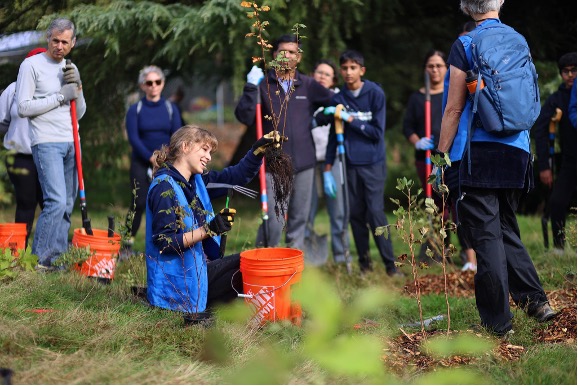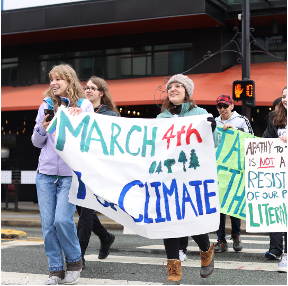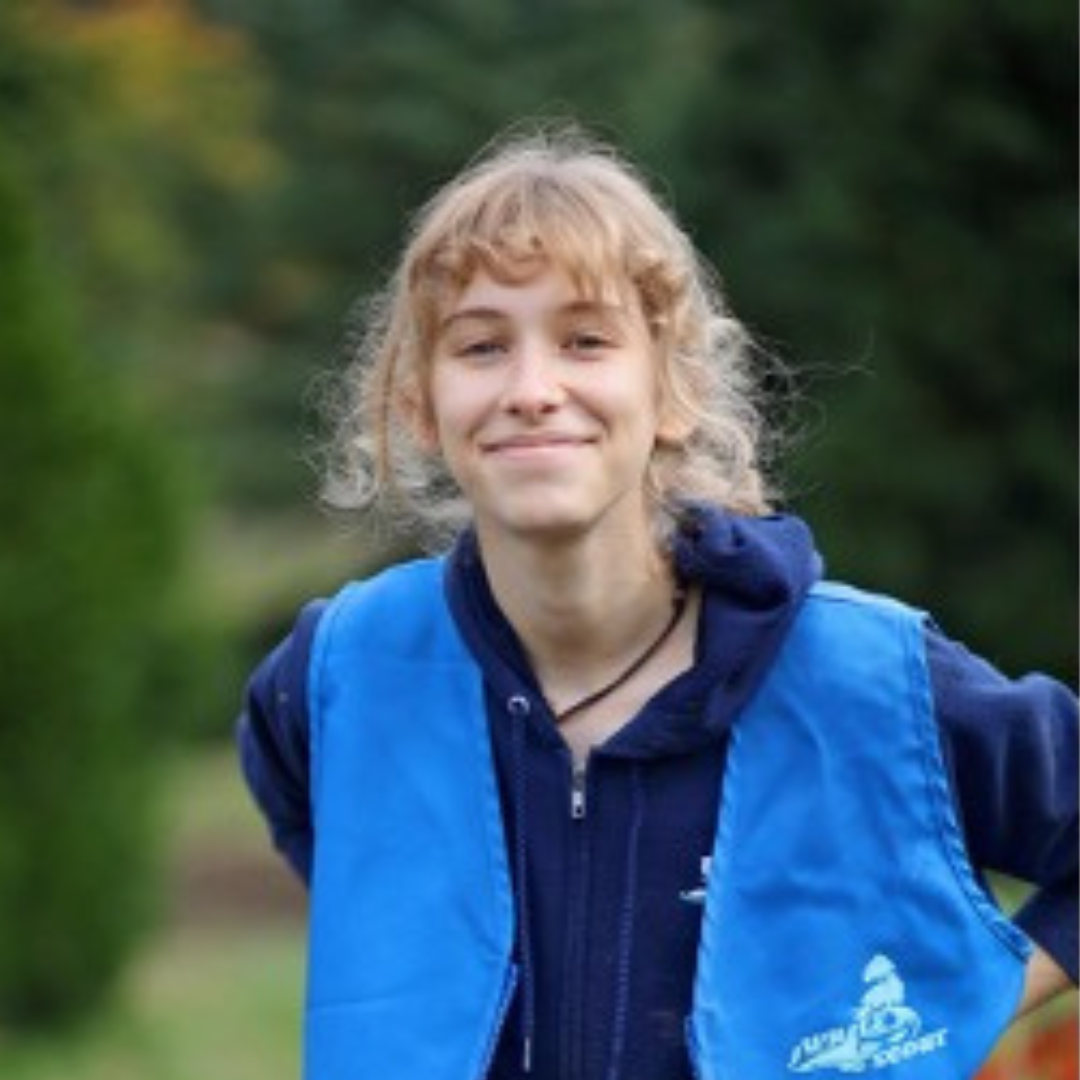By Ro Stastny
October 24, 2025

Prior to arriving at UW, Tchervenski volunteered and led cleanup projects with local conservation organization Whale Scout.
Undergraduate student Victoria Tchervenski is merging entrepreneurial leadership with environmental action.
Industrial and systems engineering (ISE) is a truly boundless discipline that connects interpersonal and technical skills, giving students a unique opportunity to become innovative leaders in global systems change. For undergraduate student Victoria Tchervenski, ISE is providing a pathway to make a big impact in climate change mitigation and protecting the environment.

Tchervenski entered the University of Washington last year, already with a wealth of leadership and project management experience under her belt, and a determination to drive positive change. As a first-year high school student she started the Climate Action Club and worked to organize multiple events aimed at fostering climate education and awareness and encouraging environmental stewardship in the greater Seattle area. Tchervenski worked as a field intern with local sustainability nonprofit Whale Scout, leading habitat restoration projects to support the recovery of threatened salmon ecosystems.
Since arriving at UW, Tchervenski has wasted no time getting involved in engineering and entrepreneurship student organizations like Engineers in Action and the Lavin Entrepreneurship Program. She was determined to find her path by exploring these networks and making connections with as many environmental impact angles of engineering as possible.
“I quickly learned that there are so many ways, across every single engineering discipline, that people can work to support environmental efforts. I went to multiple coffee chats and networking events, asking everyone I met across the engineering departments how they chose their major and how they knew it was right for them. I thought I had to choose between the hands-on impact of environmental field work, and the strategic planning and organization of business,” said Tchervenski. With so many viable options to make an impact, the decision to choose a path forward only became more challenging.
Tchervenski knew that her ultimate goal was to reduce environmental harm, and hearing “industrial” initially provoked only damaging images of overconsumption and manufacturing pollution. When she spoke to ISE students, however, their experiences illuminated a unique opportunity to lead, navigate and influence technical solutions to solve those very environmental impact problems. The discipline demands a multifaceted skillset in people and process management, technical knowledge, and big-picture thinking. Tchervenski discovered a roadmap leading right toward her dream career in engineering for climate impact. From there, everything seemed to fall into place.

“I love everything about project management and about making things happen, and I want to help people solve technical problems and remove barriers to create cleaner, more efficient systems and workflows.”
Tchervenski will be starting her second year as a UW student and beginning her ISE curriculum this academic year. In addition, she intends to pursue two minors in entrepreneurship and climate science.
All photos taken by Denitza Deltcheva